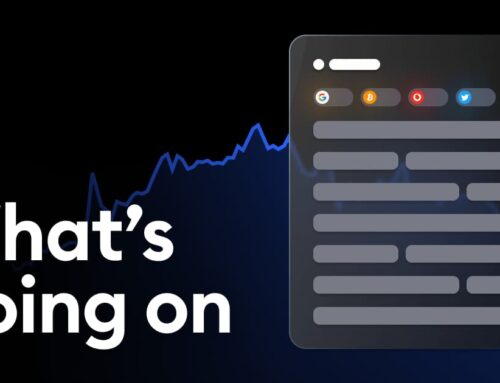Debt, Income, And Investments: Suze Orman Says We Should All Be Focused On These Because ‘
May 10, 2025
When it comes to personal finance, Suze Orman is clear: You are the best person to take care of your financial future. In a recent episode of her “Women & Money” podcast, she reminded listeners that “the government can’t save you,” and encouraged everyone to take responsibility for three key areas: debt, income and expenses, and investments.
Here’s how Orman breaks it down — and what actions she suggests taking now.
Don’t Miss:
-
Deloitte’s fastest-growing software company partners with Amazon, Walmart & Target – Many are rushing to grab 4,000 of its pre-IPO shares for just $0.30/share!
-
Maker of the $60,000 foldable home has 3 factory buildings, 600+ houses built, and big plans to solve housing — this is your last chance to become an investor for $0.80 per share.
Orman separates debt into two categories: good and bad. Good debt might include a mortgage or a car loan — especially if you need the car to get to work. Bad debt, on the other hand, usually comes in the form of high-interest credit card balances used for nonessential spending.
If you’re dealing with credit card debt, Orman suggests organizing your cards by interest rate, from highest to lowest. Write down the minimum payment due on each one, then total those minimums and add 20% to the total. You’ll make the minimum payments on all cards, but apply the extra 20% toward the card with the highest interest rate. Once that one’s paid off, you roll the entire amount you were paying into the next highest card — and so on — until the debt is gone.
She also encourages maintaining your credit limit, warning that closing cards can lower your FICO score.
Trending: Can you guess how many retire with a $5,000,000 nest egg? The percentage may shock you.
The next area Orman says to evaluate is your cash flow — what’s coming in versus what’s going out.
Orman suggests a simple exercise: Look at what you spent over the past year and divide that number by 12 to get your average monthly expenses. Then compare that number to your after-tax, after-retirement-contribution income. If your income doesn’t cover your expenses — or just barely does — you have some work to do.
“You either have to earn more, or you have to spend less,” she says. “Or you can do both.”
Orman emphasizes that your relationship with money isn’t just about reaching a specific dollar amount. It’s about how you value money — and by extension, yourself. Being proactive about your income and expenses now can help you avoid painful surprises down the line.
See Also: If You’re Age 35, 50, or 60: Here’s How Much You Should Have Saved Vs. Invested By Now
Finally, Orman says you should continue investing steadily — especially in retirement accounts like Roth IRAs, 401(k)s, or 403(b)s — if you don’t need the money for at least five to 10 years.
Her advice is to stick with dollar-cost averaging: investing the same amount regularly, regardless of market conditions. This strategy helps you buy more shares when prices are low and fewer when prices are high, smoothing out the impact of market volatility over time.
And if you’re 50 or older, don’t forget: You can contribute up to $8,000 to an IRA in 2025, thanks to catch-up contributions.
Orman’s message is simple but powerful: The economy, markets, and government programs may be uncertain, but your personal finances don’t have to be. Focus on eliminating bad debt, understanding your spending, and investing for your future.
After all, as she puts it, “Nobody is going to care about your money more than you do.”
Read Next:
-
Nancy Pelosi Invested $5 Million In An AI Company Last Year — Here’s How You Can Invest In Multiple Pre-IPO AI Startups With Just $1,000.
-
Inspired by Uber and Airbnb – Deloitte’s fastest-growing software company is transforming 7 billion smartphones into income-generating assets – with $1,000 you can invest at just $0.30/share!
Image: Shutterstock
Up Next: Transform your trading with Benzinga Edge’s one-of-a-kind market trade ideas and tools. Click now to access unique insights that can set you ahead in today’s competitive market.
Get the latest stock analysis from Benzinga?
This article Debt, Income, And Investments: Suze Orman Says We Should All Be Focused On These Because ‘The Government Can’t Save You’ originally appeared on Benzinga.com
© 2025 Benzinga.com. Benzinga does not provide investment advice. All rights reserved.
Terms and Privacy Policy
Search
RECENT PRESS RELEASES
Related Post

